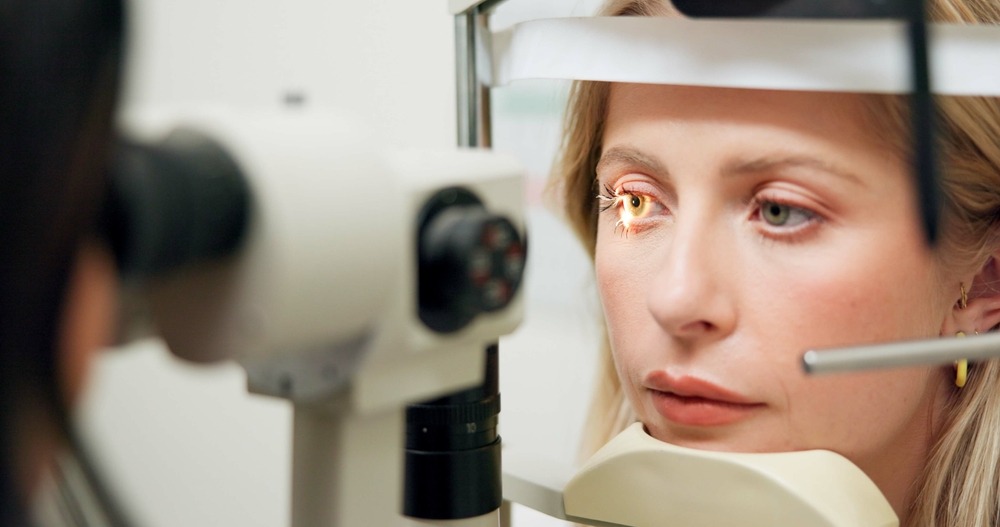Comprehensive Eye Exam
Your eyes play a crucial role in your daily life, yet many people overlook the importance of regular eye exams. Whether you have perfect vision or rely on glasses or contact lenses, a comprehensive eye exam is essential to maintaining good eye health and overall well-being. At Texas State Optical Midlothian, we are committed to providing thorough and personalized eye care for patients of all ages.

What Is a Comprehensive Eye Exam?
A comprehensive eye exam is much more than a simple vision test. It is a detailed assessment of your eye health and visual function, allowing optometrists to detect vision problems and identify early signs of serious eye conditions. Unlike a basic vision screening, which only evaluates how well you can see, a comprehensive eye exam provides a complete picture of your eye health and how your eyes work together.
What Does a Comprehensive Eye Exam Involve?
When you schedule an eye exam at Texas State Optical Midlothian, you can expect a series of tests designed to assess different aspects of your vision and eye health. It begins with a patient history review, assessing vision changes, medical conditions, and family history of eye diseases.
The exam includes visual acuity and refraction tests to determine the need for glasses or contacts. Additional tests assess pupil reactions, eye muscle function, and peripheral vision. A slit-lamp exam inspects the eye’s front structures, while a retinal exam (often with dilation) checks for conditions like macular degeneration and glaucoma.
Tonometry measures eye pressure to screen for glaucoma, and advanced tests like OCT and visual field testing may be used for deeper analysis. Afterward, the optometrist discusses findings, recommends treatments, and provides prescriptions if needed.
What Can a Comprehensive Eye Exam Detect?
Many eye diseases develop without noticeable symptoms in their early stages. Routine eye exams can detect:
Refractive errors (nearsightedness, farsightedness, astigmatism, presbyopia)
Eye diseases (glaucoma, cataracts, macular degeneration, dry eye disease)
Diabetes-related eye problems (diabetic retinopathy)
Hypertension-related eye damage
Neurological conditions (optic nerve issues, early signs of stroke)
Autoimmune disorders (Sjögren’s syndrome, rheumatoid arthritis, lupus)
The Importance of Annual Eye Exams for Children, Adults, and Seniors
Routine eye exams are vital for children, adults, and seniors, ensuring optimal vision and early detection of health conditions.
Children
Children’s vision is critical for their learning and development. Annual eye exams help detect:
Vision problems that can affect school performance
Early signs of myopia, which is increasing in children due to excessive screen time
Eye conditions such as amblyopia (lazy eye) and strabismus (eye misalignment)
Adults
For adults, comprehensive eye exams ensure clear vision, early disease detection, and eye strain prevention from prolonged screen use. Conditions like dry eye, digital eye strain, and presbyopia are common.
Seniors
Aging increases the risk of glaucoma, cataracts, and macular degeneration. Regular exams help with early detection and treatment to prevent vision loss. Certain individuals should have more frequent eye exams, including those with:
Diabetes or high blood pressure
A family history of eye diseases
Previous eye injuries or surgeries
Schedule Your Eye Exam Today
Prioritize your vision by scheduling a comprehensive eye exam at Texas State Optical Midlothian. Whether you need a routine checkup, a new prescription, or advanced eye care, our team is here to help. Contact us to book your appointment today and take a proactive step toward clearer, healthier vision.


